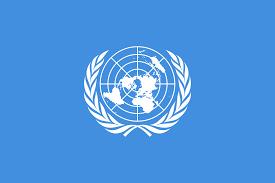Onome Amuge
The escalating global demand for gold and other critical minerals is serving as a potent catalyst for crime, corruption, and instability across Africa, according to a recent report by the UN Office on Drugs and Crime (UNODC).
The report, titled ‘Minerals Crime: Illegal Gold Mining, part two of the Global Analysis on Crimes that Affect the Environment,’ examines the motivations driving diverse actors to engage in minerals crime. It also dwells on the destinations of unprocessed metals and minerals, as well as the proceeds derived from their illicit trade. While the majority of gold mining sites are concentrated in sub-Saharan Africa, Latin America, the Caribbean, and Southeast Asia, the study observed a striking geographical imbalance, with most gold refineries predominantly located in Europe, Asia, and North America.
The study found that a broad spectrum of actors, from organised crime groups and corporations to individual operators, are actively involved in illegal gold mining and trafficking. In Africa, the report noted that some organised crime groups operate exclusively in gold, while others use gold profits to fund armed activity, challenge state authority or fuel conflict.
The UNODC report details how organised crime groups have increasingly entrenched themselves within gold supply chains, lured by the sector’s high profitability and the consistently rising value of the precious metal. It noted that while the revenues generated from illicit gold are subsequently reinvested into other criminal operations, the human cost is severe, with local populations facing sexual exploitation, forced labour, or displacement as a direct consequence of these activities.
A critical distinction shown by the report is the contrast between legal and illegal mining operations. While legitimate mining activities are subject to regulations designed to minimise environmental harm, illegal mining entirely bypasses these crucial safeguards.
The report stressed that illicit mining is intensifying environmental degradation, including the rampant use of banned or hazardous chemicals such as mercury, widespread deforestation to gain access to mineral deposits, and the unregulated dumping of solid waste. These practices, by circumventing environmental regulations, not only degrade ecosystems and accelerate biodiversity loss but also pose grave threats to public health, the report stated.
The report further noted that gold, due to its high value and ease of transport, often traverses multiple borders before reaching a refining centre. This creates numerous opportunities for criminal exploitation, but also strategic points for law enforcement intervention.
“Criminal groups frequently introduce illegally sourced gold into the supply chain by exploiting weak oversight, inconsistent documentation and regulatory loopholes along trade routes,” the report noted. However, it also identifies a critical vulnerability for these illicit networks, being that the geographical concentration of refineries offers a strategic point for disruption. The report suggested that targeted interventions at refining hubs could curb the flow of illegally sourced gold into legitimate markets.









